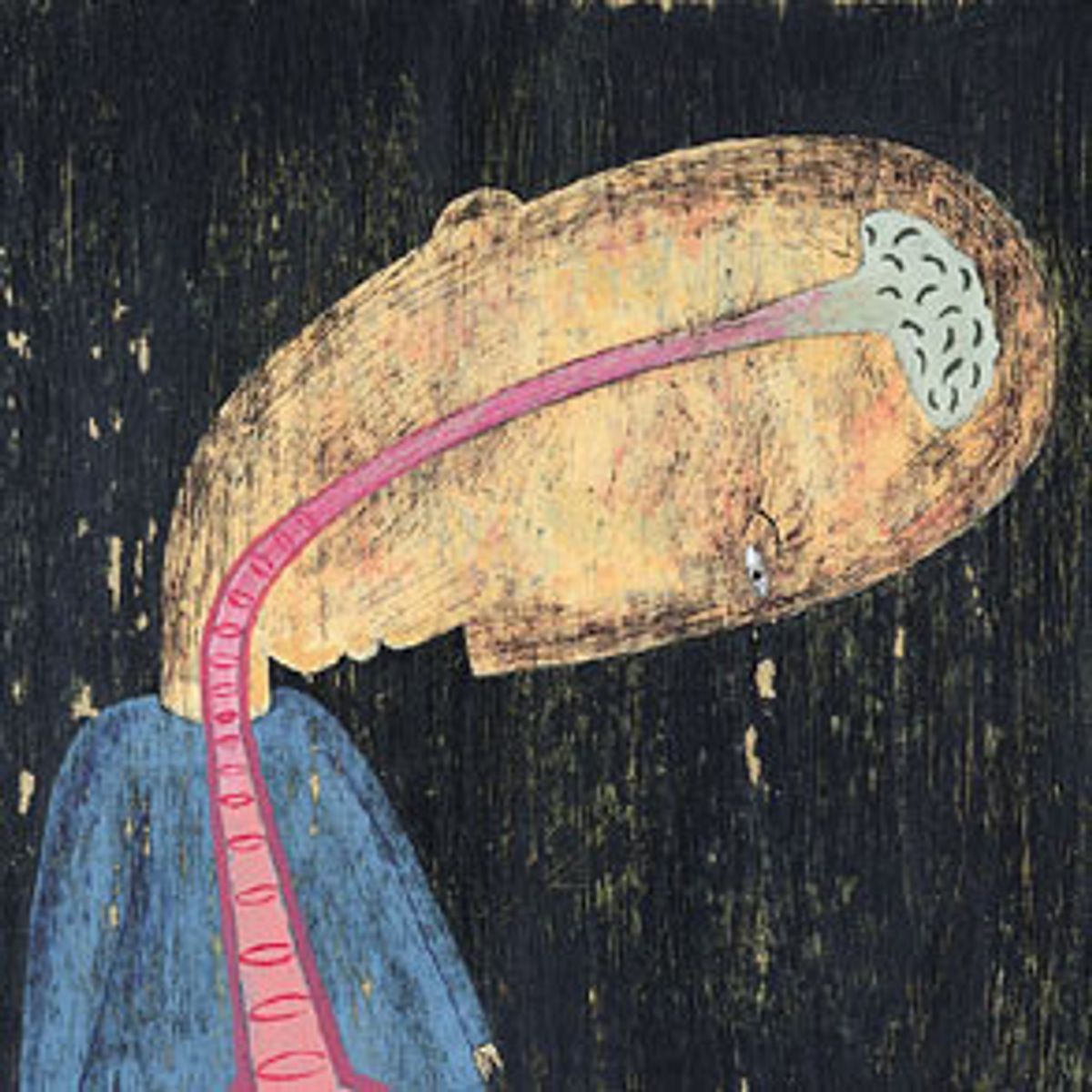I can't talk about this at work, but I'm tired. Tired of patients with illnesses moaning that this shouldn't have happened to them. Tired of their asking the fates to explain why they've been singled out for solitary anguish. Tired of the relentless vocal vacuums that can suck the life out of a medical team faster than HMO reimbursement forms and billing sheets.
As a psychologist working in an academic medical center, I see patients facing all kinds of medical disasters -- cancer, HIV, multiple sclerosis, diabetes, sickle cell anemia. I understand when they lapse briefly into stunned disbelief after being diagnosed, wondering why they, of all people, have been chosen to suffer. I battled cancer for five years and drifted from time to time into feeling sorry for myself. But I did not -- many of my patients do not -- drop into the bottomless gorge of self-pity. And I am exhausted by the ones who do.
"Why me?" is the mantra. "Why me?" the FAQ.
With Shakespearean flair, they cultivate the subtleties of injustice, the unfairness of victimhood, their cries very often emanating from the cozy confines of fantastic lives free of adversity.
O Great Orb, why hast thou turned thy face of lightness and grace from my shoulder? Why, oh why, me?
Oh, please. Why not you?
Allow me to say the things I haven't said in the psychiatry outpatient clinic or bone marrow transplant unit, at the diabetes support group or the healing center. Here goes:
Everything on this planet moves through time in the same way. Through periods of crisis and periods of calm. Evolutionary biologists like Stephen Jay Gould called this punctuated equilibrium. And it doesn't matter if we're talking about species, civilizations, dinosaurs, countries, unions, families, or individuals; their time on the planet will be marked by the same pattern. Crisis. Calm. Crisis. Calm.
It's easy to maintain equanimity when we're in periods of calm. It's how we behave during periods of crisis that demonstrates the degree to which we understand the cosmic order of things.
But those who demand "Why me?" aren't just ignoring the order of the universe; they're also suffering from an overdose of American culture. All the facets of our society send us insidious messages telling us that if we behave correctly, life will treat us gently. From O magazine to the billboards on I-95, the message is the same: Out there is a product, mantra, diet or attitude that will inoculate us from the slings and arrows of real life. Sneakers will help us fly toward basketball baskets; breath-freshened flirtiveness will win us fun, attractive friends; meditation in the right yoga togs will shield us from stress.
Of course, we can't blame Madison Avenue alone. Medical and psychological experts tell us that if we lose weight, eat well, eliminate stress, quit smoking, and talk gently to our spouses, we can avoid crisis. We only need to think optimistically and we can ascend from any hole. Our religious institutions teach us that if we tread gently we will be rewarded with tranquillity and bliss. Our educational institutions teach us that knowledge can protect us. Everywhere we look, our culture is sending us the message that if we comply, we will be spared anguish.
I have bad news.
A brief study of history shows that we have put ourselves behind the cosmic eight ball. Mass extinctions, the growth and contractions of empires, sudden evolutionary leaps, even our children's growth spurts, all show the same thing: If you live on this planet, you will experience periods of calm broken up by periods of intense crisis and radical change. No life is spared.
Unfortunately, we live in a culture that has the memory of a boll weevil.
Since many of our most intense crises happen while we are interacting with the medical system, the attitude of practitioners is illuminating. In other countries, medical systems embrace the concept that crisis and calm are a part of all lives.
Ayurveda, the medical and philosophical system in India, recognizes that all of life is balanced; there is illness and health, happiness and misery, and success and failure. The goal of ayurveda isn't the elimination of all the negative facets of life: It's the attainment of enlightenment in which the individual soul realizes how connected it is to the universal soul and rises above pain and sorrow.
In the Tao te Ching, Laotzu writes that opposites are intertwined. There is no calm without crisis. Chinese medicine, Buddhist psychology, Sufism, and Japanese Morita therapy all embrace crisis as a part of life.
But in the United States, many health professionals view ailments the same way soldiers view causalities: "If he'd been more careful he wouldn't have gotten blown up." I've seen physicians, repeatedly exposed to terrible things happening to good people, who still cling to the idea that if their patients had done something different -- lived better, thought better, exercised more -- those things wouldn't have happened to them. Sometimes it's true. But often it's not.
The sad truth is that crisis is a part of life that we can't always control, the part that causes us to change and, with any luck, learn. Circumstances beyond our control prod us forward -- hobbled or reeling from attendant pain -- and always will, no matter what gurus, advertisers, preachers, professors or fed chiefs promise. Welcome to our planet.
So when you get your next flat tire, break your arm or learn that you have arthritis: Complain bitterly, shake a fist at the heavens and then remember your connection to the rest of humanity, to the rhythm of the orb. Calm is next -- you can count on it. Until then, clutch someone's hand and get on with it.



Shares